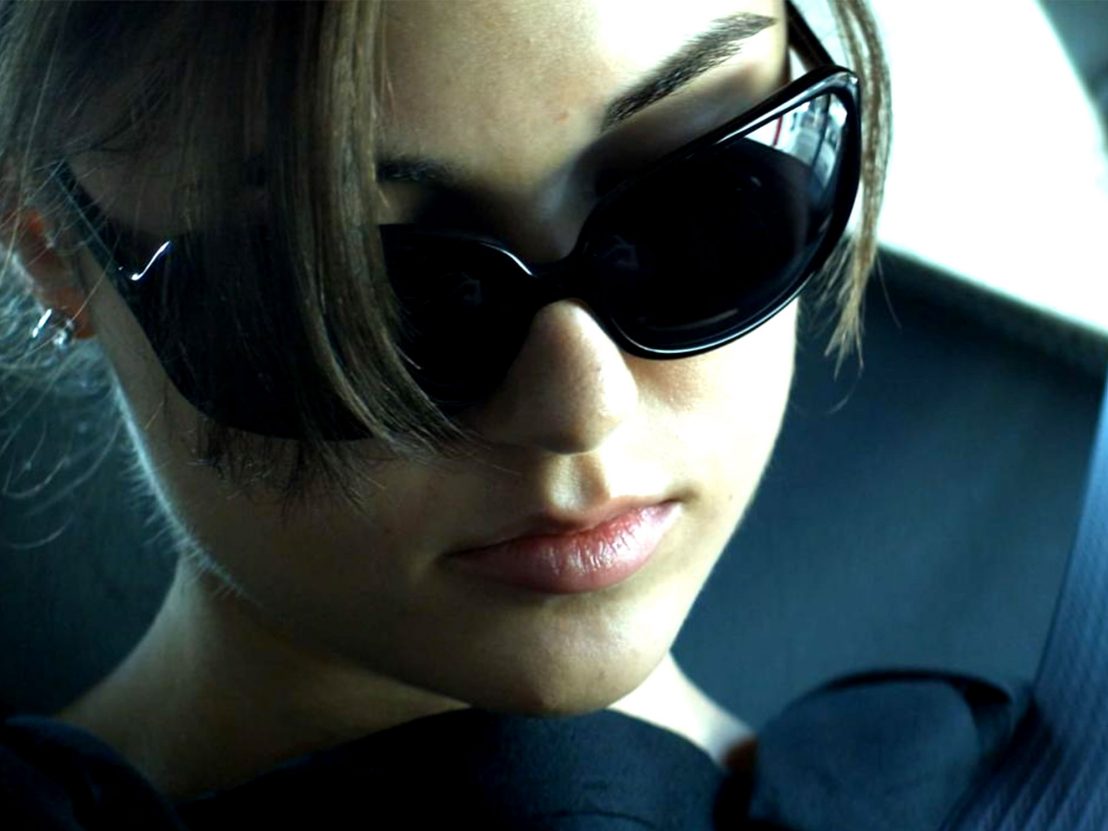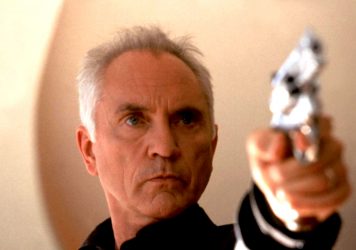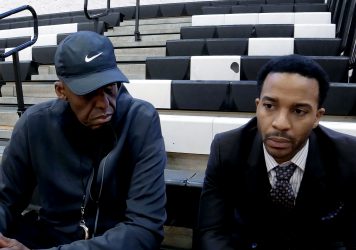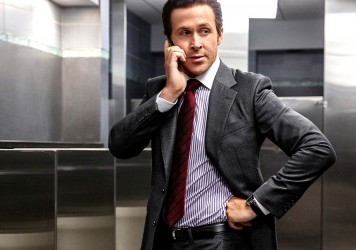
Some guy just bought Chelsea lunch at Nobu. She lies back on a sofa in his hotel room and yawns while he orders MacCallan 25 whisky on room service. She’s waiting for his bloated red fingers to undo the clasps on her Kiki De Montparnasse corset, but he seems less interested in her body than in complaining about his rapidly dwindling financial investments.
This is a typical scene in Steven Soderbergh’s The Girlfriend Experience, a slice-of-life drama following a high-class escort in the days leading up to the 2008 financial crash. In the lead role is Sasha Grey, a retired porn star famed for licking toilet bowls and being condemned on The Tyra Banks Show for supposedly corrupting impressionable young girls. Despite her CV, those looking to The Girlfriend Experience for bared flesh and uhh-uhh-ahh moaning will be disappointed: the film is less about sex than the money that pays for it.
As Chelsea moves through anonymous luxury flats and low-lit restaurants, what unfolds is a sombre meditation on how under capitalism everything is transactional – even human emotion.
Less a party than a wake, The Girlfriend Experience serves as a counterpoint to the cash-stuffed briefcases and shiny Maseratis of Soderbergh’s Ocean’s Thirteen. You get the sense that the corrupt bank robbers of the director’s 2007 heist caper could stand in for the hedge fund managers of The Girlfriend Experience, because what difference does it make if your taking money at gunpoint or extorting it using impenetrable dividend formulas? Either way, you’re taking what is not yours.
Grey brings the same dead-eyed stare and nihilistic smirk to Soderbergh’s film as she does in My First Porn Film #7 and Bukkake Girls, but it’s a look well suited to a character who spends her days catering to other people’s needs. Chelsea is the best girlfriend in the world – that’s why men pay her $2,500 a night. She can comment on the painting methods of a conceptual art piece, she tops up her eyeshadow in the toilets before breakfast, and when you watch Man on Wire at the cinema together she can provide engaging feedback. She’s exactly what you want her to be, except herself; you can’t pay her to be that.
The film positions the financial crash as an ever-present spectre in all human interactions, as though the flickering digits of the markets and the air-conditioned conference rooms have colour washed everything blue. Investment bankers – as yet unknowing that they would still receive their million dollar bonuses and Barack Obama would bail them out – are worrying about their Rolexes and Hamptons holiday homes.
In one scene, Chelsea undresses in the stuffy back office of a diamond merchant shop while the owner explains: “It’s very important that you vote for McCain, the state of Israel must continue.” In another, she sits with a client on a rooftop garden, the two of them wearing fluffy white dressing gowns and drinking freshly squeezed orange juice. “What about the bailout, how do you think that is going to turn out?” she asks him. “That’s not going to work, you need more money than the system is offering,” he replies.
Money is not just a topic of conversation, it moulds every relationship so that everything becomes transactional. Chelsea’s personal trainer boyfriend, Chris (Chris Santos), fist bumps his clients and tells them they look great and they take him on their private jet to Vegas. Chelsea goes to see a journalist (played by actual New York Times Reporter Mark Jacobson) presumably for the free lunch. She sleeps with The Erotic Connoisseur, a sex work blogger, as he promises he take her to Dubai where men will pay $5,000 just to touch her hand. She assesses whether men will be a “risky business decision” by using personology books. Even her relationship with Chris seems manufactured. She tells him about her client relationships and he offers conciliatory advice – there to listen rather than articulate his own fears and wants.
Despite Chelsea’s attempts to increase her stock price, this is a recession and the numbers are in freefall. She gets a bad review from The Erotic Connoisseur and not long after sees one of her regular Johns out with another call girl. “She’s taller than me,” she seethes over a vodka tonic. Another guy Skype calls his kids and guilt pushes him to cancel an appointment. As the film progresses and Chelsea’s popularity wanes, tight-lipped professionalism gives way to paranoia and she becomes increasingly emotional. But even as she cries in taxis and buries her head in hands, we remain utterly unconvinced that she’s capable of feeling anything but lukewarm numbness. This is probably an accident caused by Grey’s limited acting experience, but it works, serving to heighten the irredeemable quality of the narrative.
Chelsea might always be walking around in Michael Kors dresses, La Perla underwear and diamond earrings, or hiring web developers to SEO her website to increase Google traffic, but she’s not the only person monetising every aspect of her existence. Her clients spend their off hours discussing how to invest in gold, her boyfriend tries to sell sportswear lines to a department store, or calls his clients “bro” before fist-bumping them so they pay for another block of 100 gym sessions. What The Girlfriend Experience exposes is that in a post-Regan society there is a fundamental act of barter at the base of all relationships, under capitalism we are all selling ourselves, Chelsea is just the only one being honest about it.
Published 16 Mar 2019

This late ’90s neo-noir offers a heady mix of non-linear narratives, cockney rhyming slang, and Terence Stamp.

By Andy Crump
Steven Soderbergh and Tarell Alvin McCraney offer a timely interrogation of the sports-industrial complex.

The Big Short isn’t alone in equating financial disaster with man’s stunted psyche.